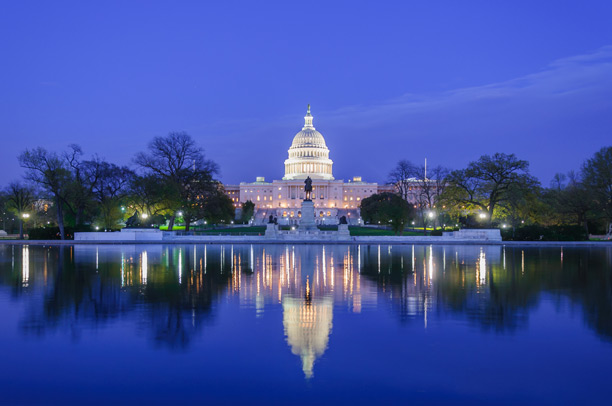
From Grassroots to Government
Republican women are concerned, educated citizens. A proud army of women in red, we are involved in our communities and states and want to preserve our nation’s principles of freedom and prosperity grounded in the U.S. Constitution. It endures because we care enough to advocate for laws and public policy at all levels of government -- from state legislatures to Capitol Hill -- that strengthen and protect our democratic Republic.
Legislative Priorities - 2024
NFRW Call to Action - HR8369 [PDF, 1 page, June 14, 2024]
NFRW Legislative Agenda [PDF, 1 page, March 2024]
Securing the Border
America’s border and immigration policy must serve the national interests of the United States. Not surprisingly, it is polling as the number one issue across our nation and affects us in all walks of life.
A comprehensive robust border security package must:
- End Asylum Fraud.
- End “Catch and Release.”
- Finish the Border Wall.
- Increase Border Patrol resources in conjunction with closing loopholes in the
immigration system.
- Mandate E-Verify to ensure legal employment.
- Oppose amnesty in any form.
Resources:
Talking Points - Border Security [PDF, 3 pages]
Leave Behind - Border Security [PDF, 1 page]
NFRW Resolution - Calling for Border Security [PDF, 1 page, adopted March 16, 2024]
HR2 – Secure the Border Act of 2023
S333 – Keep Our Communities Safe Act of 2023
HR6976 – Protect Our Communities from DUIs Act
Rebuilding the Economy
A strong America needs a strong economy. Private Sector Job Creation, Fair and Free Trade, Energy Independence, and Tax Relief for working Americans are all necessary to keep America great and growing.
NFRW supports legislation that puts Americans to work, provides for affordable and reliable energy and lets our citizens keep more of what they earn. We will look at American and foreign policy that is detrimental to our American way of life.
Resources:
Talking Points - Economy [PDF, 6 pages]
Leave Behind - Economy [PDF, 1 page]
NFRW Resolution - Calling on Congress to Adopt Proposed Legislation to Fuel America’s Economic Growth [PDF, 1 page, adopted March 16, 2024]
HR 7024 – Tax Relief for American Families and Workers Act of 2024
HR 277 – Regulations from the Executive in Need of Scrutiny Act of 2023 (REINS Act) of 2023
S184 – Regulations from the Executive in Need of Scrutiny Act of 2023 (identical to HR 277)
Protecting Parental Rights
Parents have a fundamental right to direct the upbringing of their children.The right to direct upbringing includes - but is not limited to - the liberty of parents to make decisions regarding the education and health care of their children. (S.3571).
Resources:
Talking Points - Parental Rights [PDF, 4 pages]
Leave Behind - Parental Rights [PDF, 4 pages]
NFRW Resolution - In Support of S. 3571, Families’ Rights and Responsibilities Act [PDF, 1 page, adopted March 16, 2024]
S3571 – Families’ Rights and Responsibilities Act
Radar Initiatives - 2025
Keep Nine
The NFRW Legislation & Research Committee has adopted the Keep Nine Amendment to the U.S. Constitution as one of our radar initiatives for 2024-2025.
The two pieces of legislation we are supporting are House Joint Resolution 28 and Senate Joint Resolution 16. The legislation has been endorsed and supported by the NFRW for several years and simply states that, “The Supreme Court shall be composed of nine justices.”
The purpose of the amendment is to stop “court packing” and finalize a set number of justices on the Supreme Court.
Resources:
KeepNineontheSupremeCourt.org
House Joint Resolution 28
Senate Joint Resolution 16
Keep Nine Initiative [PDF, 1 page]
Keep Nine Letter [PDF, 1 page]
Keep Nine Call to Action [JPEG]
Keep Nine Resolution [PDF, 1 page, adopted October 1, 2023]
MEMBER TIP: Download member resources for legislative priorities and other key issues by logging in and visiting the Digital Resource Library.